A new chef restaurant in Tel Aviv proves there’s way more to Druze cuisine than stuffed vine leaves or pita spread with labneh and za’atar.
Hype is not what drove Naifa Mulla to open her eponymous restaurant in Tel Aviv’s trendy Neve Tzedek neighborhood.
She already experienced lots of media attention in 2019 after reaching the semifinals of reality TV cooking competition “Chef Games” and being chosen for a six month residency at the L28 Culinary Platform for up-and-coming chefs.
“It was my time to fly,” she tells ISRAEL21c, as she recalls being swooned over for her contemporary take on Druze cuisine.
Now, the 34-year-old says adamantly, “I don’t wait for the applause. I cook what I love and have confidence in what I do. I don’t follow trends. I want this experience to be about sharing and hosting, as much as it is about the dishes I create.”
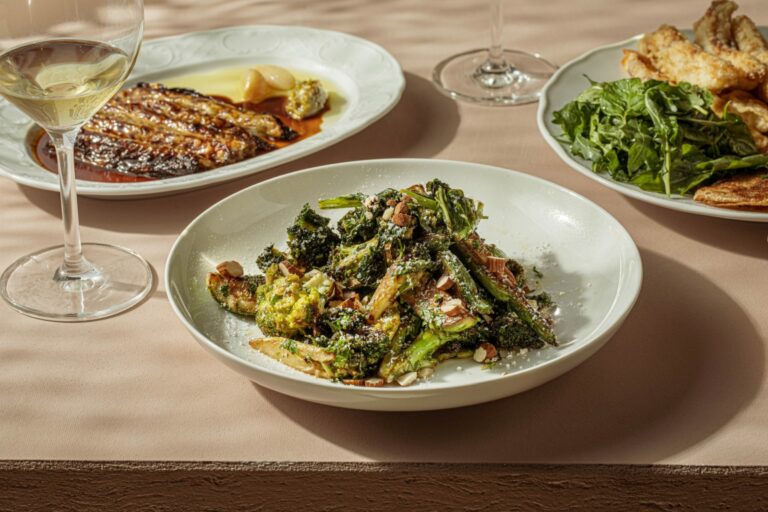
Although our interview takes place in the early afternoon, a few hours before diners arrive (there are two evening sittings at Naifa), it’s easy to imagine the scenario Mulla describes.
The lightwood Scandi décor and glass pendant lights are designer, but there are traditional touches too: jars of pickles on a shelf, a row of silver Turkish coffee pots and crocheted doilies made by Mulla’s mother.
The scent of cardamom fills the air as it is ground in the open kitchen to make the baharat spice blend.
The menu oozes the same hybrid flair. There are gnocchi made not with potatoes but with smoked freekeh wheat and served with roasted leeks and yogurt cream.
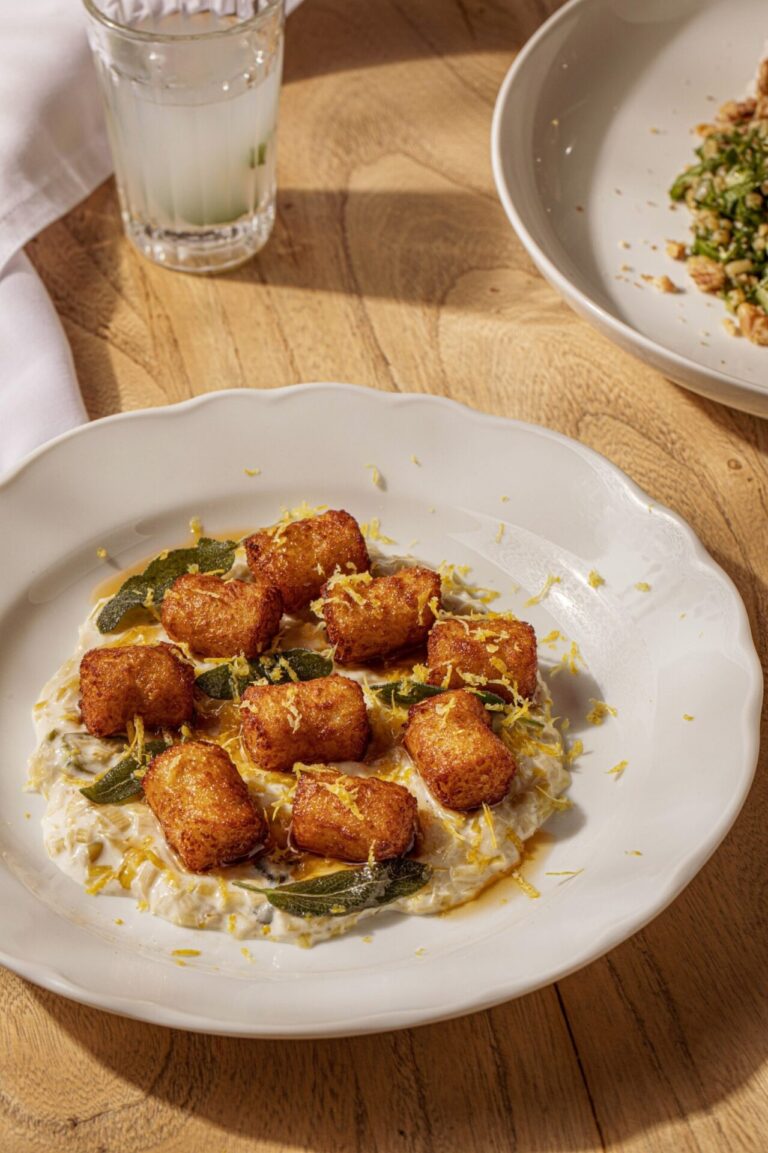
Fish sashimi comes with creamy sour cheese from Hameiri dairy in Safed and hubeiza leaves (a type of spinach. The traditional Druze stuffed cabbage (malfouf) is cooked in a lamb reduction along with garlic confit and zhug.
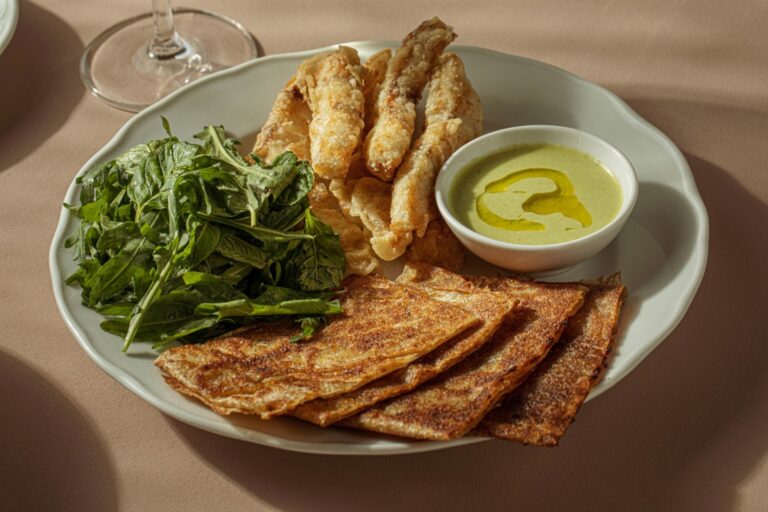
Desserts also tease the traditional: Pannacotta made with labneh topped with olive oil crumble and sugared pine-nuts, and date/pistachio marzipan petit fours.
Mulla says a lot of the ingredients come straight from Yarka, the Druze village in the north where she grew up and where her family still lives.
“Every week a cousin brings in olive oil, spices and the Druze pitot which my mother makes for the restaurant,” she tells ISRAEL21c.
From the village to the city
Mulla is one of five sistersfroma well-established Yarka family. During her childhood she lived with her grandmother for a few years “to help out” and this was the start of her culinary training.
“My grandmother taught me about taste. At cooking schools you can learn about emulsions and chopping techniques, but taste is something you have to discover yourself with the right guidance.”
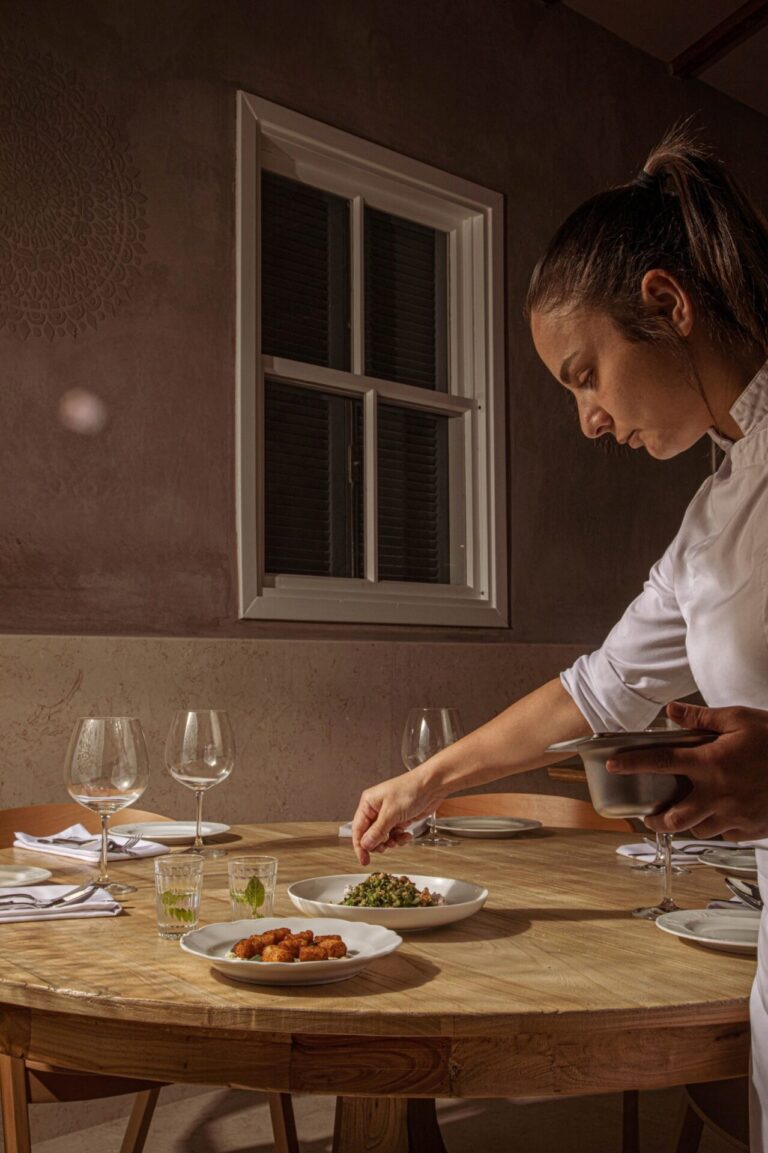
After completing a year of national service, Mulla decided to study accountancy with the idea of working in her father’s company. She then married Khaled, then an IDF career soldier, and after a time the couple made a joint decision “out of curiosity” to leave the village and move to Ramat Gan.
Mulla, who by then had graduated and given birth to her first daughter, started to work in banking.
After three years, she resigned from the bank to give herself time to find out where her passions lay. It was while having dinner at Chef Haim Cohen’s Yaffo-Tel Aviv restaurant that Mulla caught sight of a trainee making pasta and bravely asked if she could come and learn for a day or two.
“I cook what I love and have confidence in what I do.”
While describing this turning point, she shares another of her core philosophies. The ego, she says, has to be left far behind when you start out.
“In this business, you don’t go anywhere if you can’t ask for help to learn.”
After a few days of working in the kitchen she was offered to stay on. This stint turned into four and a half years in which she learned “all the basics as well as the techniques of French cuisine.”
Proving herself
Mulla left when she realized she could go no further, but was not left idle for long. She received a call soon after from Yarzin Sella, the culinary consultancy group behind L28 (“I had to Google them to find out who they were,” says Mulla).
Now she had to prove herself by developing her own menu, a task in which she succeeded beyond expectations, as sold-out sittings attested to.
At the same time she was challenged by participating in “Chef Games.”
“Mentally, it was tough. You have to look good, cook well and talk sense while being filmed,” she recalls.
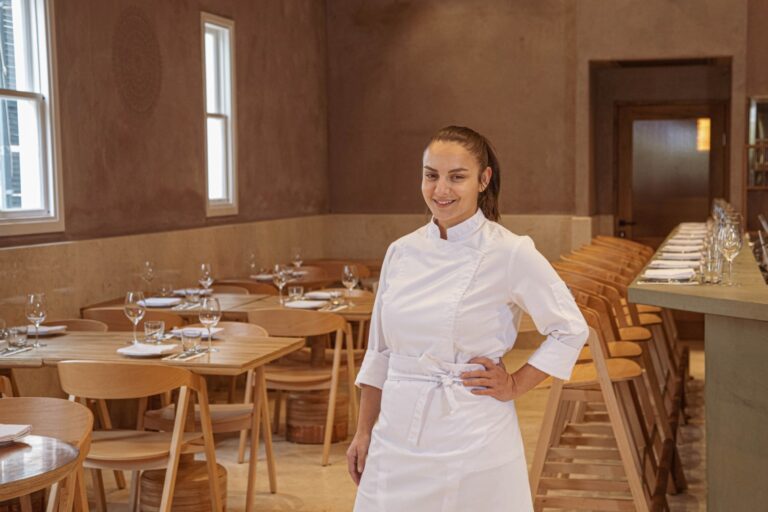
The right property
Then the pandemic arrived and everything came to a halt. She began catering for private events, eventually doing three to five a week, which enabled her to build up the capital needed to open her own restaurant. As corona waned, she set about finding the right location for it.
“I was looking for a place where I would feel at home and I must have seen 100 properties before finding this one, which I fell in love with immediately.”
Mulla is referring to the space formerly occupied by Cordero restaurant, in front of the Suzanne Dellal Center for Dance and Theater.
“I was looking for something that had soul and where I could feel at home. The stones on the piazza reminded me of my village, Yarka, and also of being in Provence or Istanbul.”
On the subject of choosing to name the restaurant Naifa, the chef says this was no ego trip.
“It may seem pretentious at this stage to call a restaurant after myself but actually Naifa is also my grandmother’s name and it means a strong and beautiful woman, so why not?” she says with a laugh.
For more information, click here.
